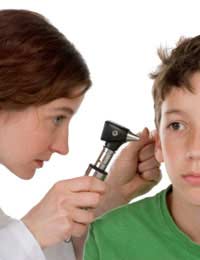Meniere's Disease and the Inner Ear

Many people are familiar with the term Meniérè’s disease though few have knowledge of its definition or cause, this is also true of the ear health experts as they too are unsure of its actual cause.
What Is Meniérè’s Disease?
Rather than having just one specific explanation, this condition is given to a collection of symptoms that usually come in episodes as opposed to being constant.It is a complaint of the inner ear and is thought to be connected to the fluid balance functions and related structures, and associated disturbances.Signs And Symptoms.
Sufferers are likely to experience a collection of the following symptoms either together or at separate intervals: tinnitus, vertigo, gradual hearing loss especially of low pitched sounds and feelings of high pressure within the ear.Most of the time these symptoms are short lived, but can at the time be so severe that they can affect the person’s everyday quality of life and cause fear of an attack to develop, and can interrupt normal functions of life such as driving.Vertigo is often the most severe of the symptoms and is usually the reason why medical help is sought. It often begins with periods of dizziness that progresses to feelings of spinning leading to nausea, vomiting and disturbances in the ability to balance. This can also be a source of real anxiety for the sufferer as they begin to dread these episodes.
Sufferers have described feelings of high pressure in the ears as being like having ears full of water that will not run out or similar to blocked ears that won’t ‘pop’ such as when flying.Those diagnosed with this condition have also reported distortion of certain sounds especially of loud noises.
Treatment Options.
Many experts agree that a reduction in sodium intake is one of the single most effective ways of reducing the symptoms of this condition.Along with this several GP’s will recommend the use of a diuretic (water tablet), medication specifically given for vertigo, anti-sickness medications and therapy to reduce stress. These treatments all aim to reduce the severity and incidence of the symptoms of Meniérè’s disease but to treat the problem long-term often the use of surgery is required, especially if vertigo continues to be uncontrolled by the use of drugs.One type of surgery involves the introduction of a particular drug into the inner ear aiming to help regain balance within the ears. A second type of surgery concerns decompression techniques aiming to release built-up pressures within the ear. Finally, surgery on the nerves of the ear may be indicated causing certain nerves to be permanently destroyed.
No surgery is without risk and all of the options should be considered before consent for any procedure is given. A detailed and thorough discussion between practitioner and patient should be permitted in order to discover which are the worst symptoms, leading to an informed decision of the correct type of surgery required.
Meniérè’s disease is a difficult condition to understand as it is not fully understood by experts. It is a term given to a collection of symptoms which each individual may suffer all or just one of.
- Psoriasis and the Ear
- Common Vestibular Disorders
- Dizziness: Is it Caused by a Virus?
- Cysts and Tumours in the Ear
- Pressure Sores and the Ears
- Head Trauma and the Ear
- Allergies and Ear Health
- What is Glue Ear?
- Usher's Syndrome: Deterioration of Sight and Hearing
- The Effects of Over Exposure to Water: Surfer's Ear
- Acoustic Neuroma: Benign Tumour from Auditory Nerve
- Cauliflower Ears
- Sensorineural Deafness and Noise Damage
- Autoimmune Inner Ear Disease
- Cholesteatoma
- Perforated Eardrum
- Large Vestibular Aqueduct Syndrome
- Otitis Media and Infection of the Middle Ear
- Barotrauma
- Vertigo and the Inner Ear
- Mastoiditis
- Swimmer's Ear
- Labyrinthitis
- Objects In The Ear
- Ear Canal Blockage
- Tinnitus and Treatments Available
- Ear Infection


Re: Myringotomy
"Julia's Garland" (fr. Guirlande de Julie)
Re: Types of Ear Surgery
My child is born with deaf. So what should i do. Which treatment should i take to my child
Re: How Your Genes Shape Your Ear Lobes
My 2 month old has one free earlobe and his other ear has a half attached earlobe why? Should I be concerned?
Re: I Feel Dizzy and My Ear Itches: What Does it Mean?
I have noticed my ears are producing more sticky staff, itching and in the middle of last year I…
Re: Can Ear Wax Be Removed by Vacuum?
Vacuuming caused a 30% hearing loss. Don't allow it. Find a dr or audiologist who avoids it.
Re: Cysts and Tumours in the Ear
I had a pollock in my ear. can they regrow ?
Re: Grommets and Your Ear
@Ella - I'm afraid we can't give direct medical advice. The best option you have is to visit your GP and hope he/she will be able to help…
Re: Grommets and Your Ear
I had grommets when I was 2 and 5, a few weeks ago I found out I have scarring and 1 of my grommets are still in my ear meaning I had it in…
Re: Can Ear Wax Be Removed by Vacuum?
I had an ear wax removal procedure done at the Loma Linda, Ca Va facility. When the tech was vacuuming out the wax in my…
Re: Cysts and Tumours in the Ear
@CarrolA - I have no knowledge of your condition or what it might be. But if you want a quicker appointment, and peace of mind,…